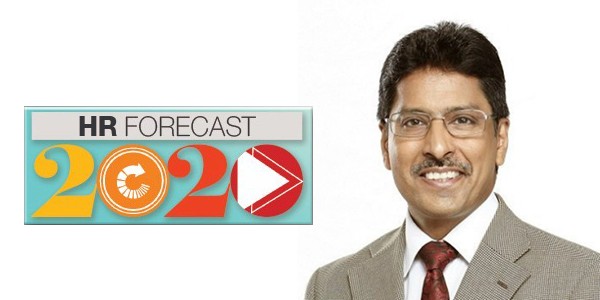Technology, data, employee experience: What’s high on agenda
In my view, talent and productivity will be the two biggest priorities for the coming year. We still seem to be battling some key talent deficit across levels, functions, and industries. We will see more of new-age skills in demand, either to be met by reskilling or by new hiring. And yet, the market will continue to demand more from less. I think organisations are going to be redrawing their architecture across the board. Leveraging technology options will be a given. While the focus will be on productivity, I would reckon the accent on employee experience will be a concomitant gain.
Investment in leadership will continue to be critical. I hope there is more emphasis on middle management talent than in the past. But my overarching sense is that the biggest strategic priority for HR will be strategic transformation. The change will need to be led as well as enabled, for a variety of reasons specific to the industry and the firm. This is also the biggest gap I see in terms of HR capability today. So, the year will present an opportunity for many in HR to pick this skill from the agenda that I foresee.
Balancing humanity and technology
CHROs have always had to manage apparent contradictions. This pressure will continue in 2020. The business sentiment will call for a relook at the many dimensions of a workplace and a workforce. There will be strategic shifts in structures, talent mix and talent count. New digital moves will push companies and their business models out of their comfort zones. Many people may not seem adequately relevant or impactful in the new reality. They will need to be dealt with fairly but firmly. Reorienting a new workplace to align with a more agile and responsive culture will force the union of the hard stuff with the soft. Those CHROs who will be able to deal with this duality are likely to deliver better outcomes than those who will be more unidimensional.
Ladder-shaped to pulse-shaped compensation mechanism
In my view, there will be no choice but to disrupt our historical thinking. It is not just for the CHROs but the promoters and boards to move away from a world that is almost dead. Both careers and rewards will not necessarily be surrogates for tenure. The definition of loyalty, progression and rewards will need to change for the best talent. Socialism will stay popular because a huge majority of the workforce will prefer security and stability. But the best will want to experiment, take risks, move out of classical careers, and learn ahead of the curve.
How the companies will attract and keep this set of talent, comprising both rain makers and change makers, will be interesting to see. The decibels of the majority still dictate a lot of our thinking and doing. While this buys today, I am not sure it insures tomorrow. Tenure cannot determine leadership progression any more. Nor can socialistic rewards keep the best. I think there will need to be a shift towards a hybrid model. Unless we do that, we will continue with the same boring set of annual or quarterly events that we have seen for too long.
The future of ‘Teal’ organisations
I wish I could be more optimistic. Many organisations – I now meet to advise – say all the right things but they are far removed from a resolve to practise them. The pressure of the here and now and their own discomfort with the new is making change still evolutionary. There exists a tendency of wanting to follow rather than lead. Therefore, in my view, while everyone is speaking the right things, most are responding too slowly. Also, many interventions may not give results overnight. The way I look at it, there appears to be a crisis of leadership and governance. Both must be priorities for CHROs to help their organisations with. But, they definitely need to demonstrate more courage and resolve than before.
Internal equality and internal equity
It all starts from the tone at the top. Unless that shifts, I am afraid nothing much will pervade down the line. Life is never equal — in terms of opportunity, impact or reward. It must not be. Various people look at deserts differently. Some manage to grow an oasis in them. So I am not a believer in equality. But yes, there must be better internal equity. This is an issue of philosophy and principle, not of absolute numbers. There has to be an articulation of that ‘shared destiny’ and organisation systems must align everyone with that common interest.
The goal setting system itself is faulty and overweight in many companies. By splitting hair, we have so many line items for everyone, no one really knows what uber-goal we are collectively playing for. The leadership inability to measure up to a simpler ask makes most organisations complex, something that unfortunately gets celebrated. Unless, we get some of these fundamentals right, we will have enough reasons to expect internal equality, because we have never understood internal equity.
(This article first appeared in HRKatha print magazine)



